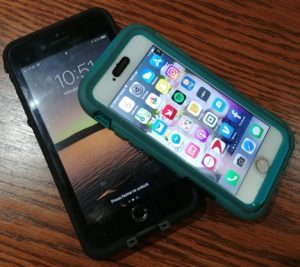 The Supreme Court of Pennsylvania recently decided a case regarding the permissible scope of a warrantless search of a cell phone by police and the confines of the harmless error doctrine. In Commonwealth v. Fulton, 2018 Pa. LEXIS 982 (Feb. 21, 2018, No. 3 EAP 2017), the issue was whether the powering on of a cell phone to gather evidence, without a warrant, violated the Fourth Amendment to the United States Constitution and Article I, Section 8 of the Pennsylvania Constitution and if so, whether the decision to allow the Commonwealth to present evidence obtained as a result of the warrantless search was harmless beyond a reasonable doubt. The Court held that accessing any information from a cell phone without a warrant violates the United States Supreme Court’s decision in Riley v. California and United States v. Wurie, 134 S. Ct. 2473 (2014). In those cases involving the warrantless search of a cell phone, the United States Supreme Court held that although the warrantless seizure of the cell phone from Riley and Wurie was permissible as the result of a search incident to arrest, the subsequent searches of their phones was not and that in order for police to lawfully search a cell phone, they must first obtain a warrant. The privacy concerns related to the search of a cell phone far exceed any such concerns related to the search of other physical items like a wallet or a purse because cell phones store vast quantities of personal information. Additionally, in this case, the Court concluded that the error of admitting the evidence obtained as a result of the warrantless search of the cell phone in this case was not harmless because the Superior Court failed to discuss whether the evidence that it relied on to find harmless error was contradicted by other evidence of record.
The Supreme Court of Pennsylvania recently decided a case regarding the permissible scope of a warrantless search of a cell phone by police and the confines of the harmless error doctrine. In Commonwealth v. Fulton, 2018 Pa. LEXIS 982 (Feb. 21, 2018, No. 3 EAP 2017), the issue was whether the powering on of a cell phone to gather evidence, without a warrant, violated the Fourth Amendment to the United States Constitution and Article I, Section 8 of the Pennsylvania Constitution and if so, whether the decision to allow the Commonwealth to present evidence obtained as a result of the warrantless search was harmless beyond a reasonable doubt. The Court held that accessing any information from a cell phone without a warrant violates the United States Supreme Court’s decision in Riley v. California and United States v. Wurie, 134 S. Ct. 2473 (2014). In those cases involving the warrantless search of a cell phone, the United States Supreme Court held that although the warrantless seizure of the cell phone from Riley and Wurie was permissible as the result of a search incident to arrest, the subsequent searches of their phones was not and that in order for police to lawfully search a cell phone, they must first obtain a warrant. The privacy concerns related to the search of a cell phone far exceed any such concerns related to the search of other physical items like a wallet or a purse because cell phones store vast quantities of personal information. Additionally, in this case, the Court concluded that the error of admitting the evidence obtained as a result of the warrantless search of the cell phone in this case was not harmless because the Superior Court failed to discuss whether the evidence that it relied on to find harmless error was contradicted by other evidence of record.
Therefore, in order for police officers to search the contents of a cell phone, they must first obtain a warrant. Any information obtained by a search of a cell phone without a warrant is considered “fruit of the poisonous tree” and may not be used against a person in court. At Omnis Law Group, our experienced criminal defense attorneys have successfully litigated issues involving electronic evidence and constitutionality invalid searches, such as the warrantless search of the cell phone in the case above. Contact Omnis Law Group now, at 610-627-2300, to schedule your free consultation with one of our experienced attorneys.









